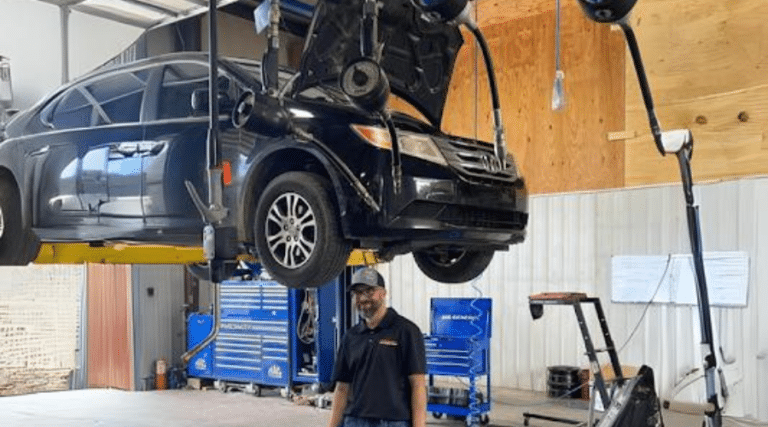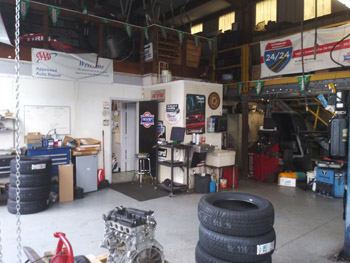All Categories
Featured
Brakes are perhaps the most essential security function of any type of automobile. Without trustworthy brakes, also the most effective vehicle can come to be a danger on the road.
- The Relevance of Regular Brake Inspections. Brakes undergo continual wear and tear with every use, whether you're driving at broadband on the highway or cruising with city roads. With time, brake pads, blades, and other parts wear down, which can affect braking efficiency. Without routine examinations, you might not observe the gradual decline in effectiveness up until it's also late.
Routine brake examinations enable you to catch issues early, guaranteeing that your brakes continue to be responsive, trustworthy, and risk-free. Timely evaluations can also conserve you money by dealing with small problems prior to they become expensive repair services.
- Typical Indicators That Your Brakes Need Focus. While regular brake assessments are very important, there are some indication you can keep an eye out for to recognize when it's time to schedule a check-up:
Squealing or Grinding Sounds: Shrill squeaks or grinding sounds when applying the brakes are usually indications that your brake pads are worn and need substitute. Vibration or Pulsation: If you really feel resonances in the steering wheel or the brake pedal, it could indicate warped blades, which may require resurfacing or changing. Soft or Spongy Brake Pedal: If the brake pedal really feels unusually soft or squishy, there may be air in the brake lines or a trouble with the master cyndrical tube. Pulling away: If your vehicle draws to one side while stopping, this could be brought on by irregular brake pad wear or a concern with the brake fluid. Enhanced Stopping Distance: If it takes longer to quit than typical, it might show that the brake pads are worn, the fluid is low, or the rotors are harmed. If you notice any of these signs and symptoms, it's ideal to have your brakes evaluated promptly.

- Key Parts Checked During Brake Inspections. During a brake examination, a technician will certainly examine several essential parts of the stopping system to make certain whatever is working effectively. Below are the essential elements involved:
Brake Pads: The most typical factor for inadequate braking efficiency is worn-out brake pads. Checking the density of the pads is a priority during every inspection. Brake Rotors: Blades ought to be smooth and complimentary of grooves or splits. Any type of substantial damages to the rotors might lead to endangered stopping efficiency and unequal pad wear. Brake Liquid: Reduced or contaminated brake fluid can hinder braking performance. The service technician will certainly inspect the fluid levels and high quality and replace it if necessary. Brake Lines and Hoses: Brake lines ought to be without leakages or splits. Any kind of damage to the lines can cause loss of brake liquid, causing brake failure. Brake Calipers: The calipers use pressure to the brake pads. They need to be checked for signs of wear or leakages to guarantee they are operating appropriately. Consistently examining these elements aids keep your brake system in peak problem, enabling you to quit your vehicle securely and efficiently.
- Exactly how Often Should You Have Your Brakes Checked? The basic recommendation is to have your brakes inspected at the very least yearly or every 12,000 miles, relying on your driving behaviors. Particular driving conditions may require even more constant assessments:
Hefty Web Traffic: If you usually drive in stop-and-go traffic, your brake pads will put on down quicker. Mountain Driving: Driving on steep roads calls for more regular braking, which can create your brakes to put on much more promptly. Towing or Hauling Heavy Loads: If you frequently bring hefty lots, your brakes will experience extra stress and call for even more regular inspections. If you see any one of the warning indications pointed out earlier, don't wait on the following scheduled examination-- have your brakes inspected right away.
- The Consequences of Neglecting Brake Inspections. Disregarding routine brake examinations can lead to serious effects. A failing brake system could result in lowered stopping power, which boosts your threat of crashes.
In the worst situation, driving with damaged brakes can cause complete brake failing, placing you and various other chauffeurs in jeopardy. Normal brake examinations are a little financial investment that can conserve your life and stop expensive repair work.
- Final Thought: Stay Safe with Regimen Brake Inspections. Brakes are not something you wish to take chances with. A trustworthy braking system is vital for risk-free driving, and routine brake assessments are a simple method to ensure that your automobile quits when you need it most. By remaining on top of brake maintenance, looking for alerting signs, and having your brakes checked at the suggested intervals, you'll shield both your automobile and your safety.
Don't wait till your brakes begin to fall short-- routine normal brake evaluations and keep your automobile in optimum condition for many years ahead.
Latest Posts
Reasons Routine Car Maintenance at Montclare Auto Repair Keeps Your Wallet Happy
Find Out Save Big on Car Maintenance with Montclare Auto Repair’s Limited-Time Deals
Uncover Save Big on Car Maintenance with Montclare Auto Repair’s Limited-Time Deals
More
Latest Posts
Reasons Routine Car Maintenance at Montclare Auto Repair Keeps Your Wallet Happy
Find Out Save Big on Car Maintenance with Montclare Auto Repair’s Limited-Time Deals
Uncover Save Big on Car Maintenance with Montclare Auto Repair’s Limited-Time Deals
